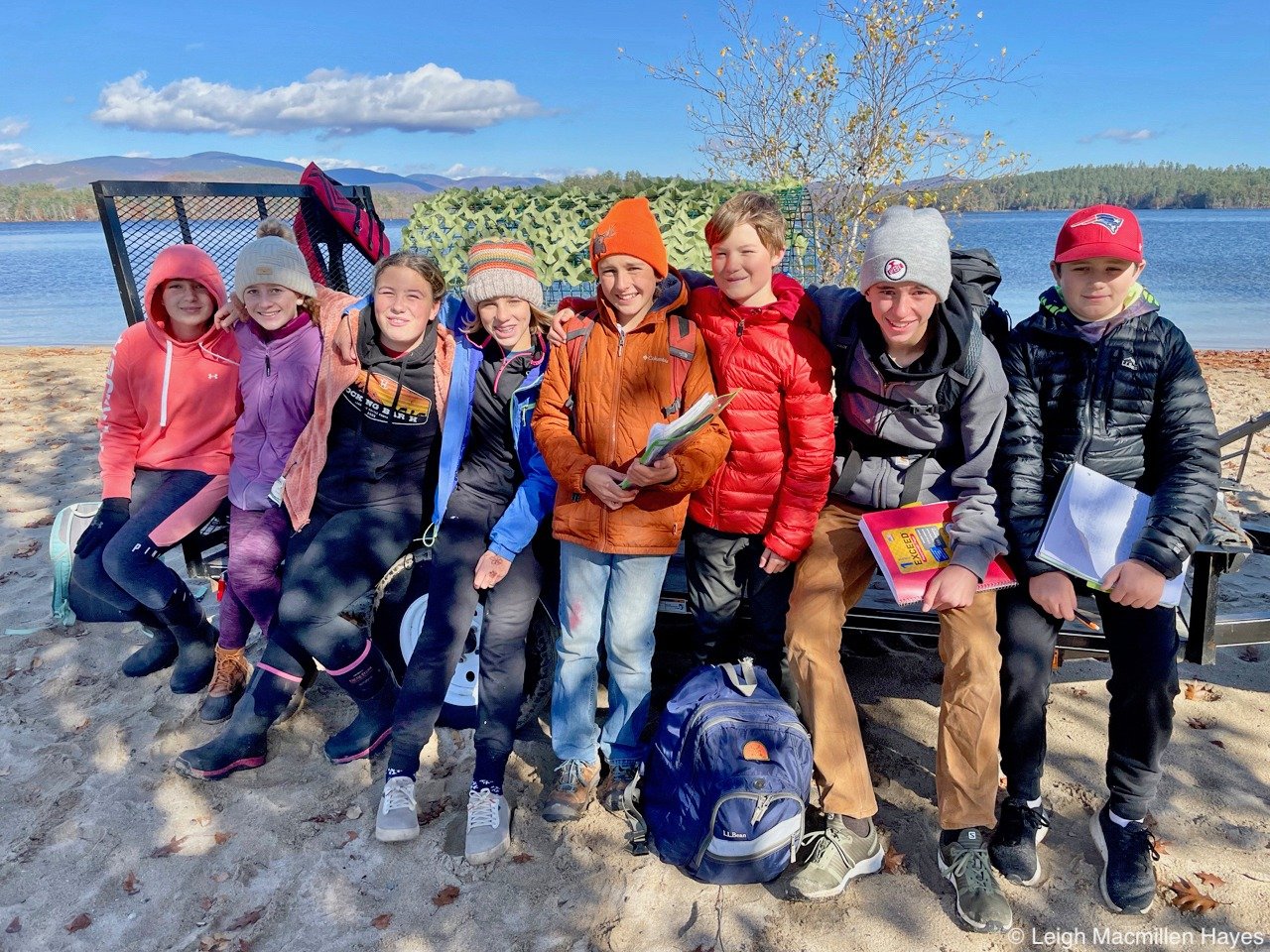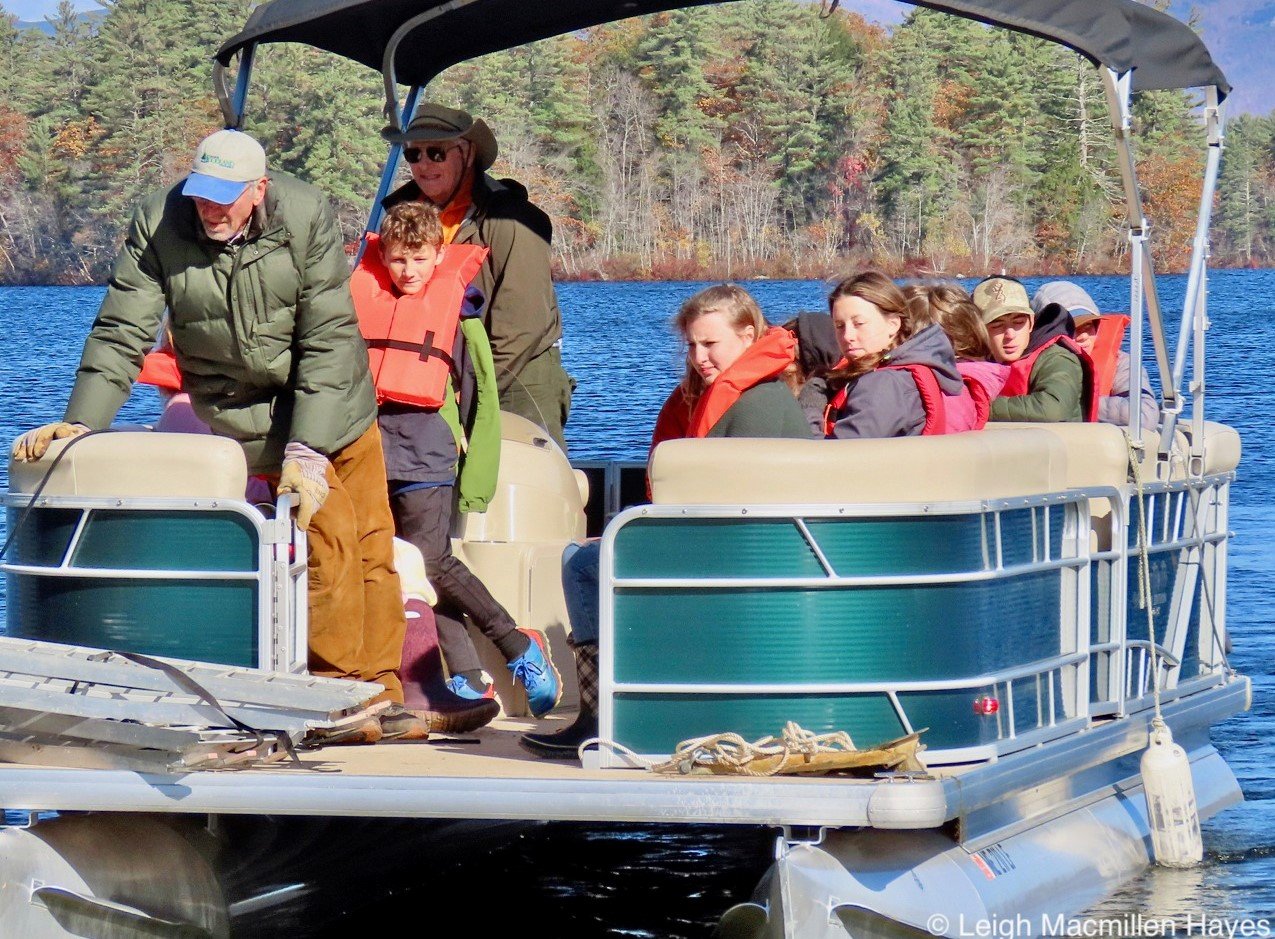KLWA partnered with Maine Lakes and Greater Lovell Land Trust (GLLT) to host thirty-eight 6, 7 and 8th graders for two outings this fall. The Molly Ockett School students are part of the Maine Environmental Science Academy (MESA) program, a multi-disciplinary science, mathematics, and English/Language Arts experiential learning class.
Enthusiastic Molly Ockett students pose with one of the loon nesting platforms KLWA deploys each spring.
Day 1: Shoreland Protection (LakeSmart)
The shoreland protection presentation on September 29 was led by regional LakeSmart Coordinator Roy Lambert and Chris Brink (KLWA), with support from MESA coordinator Leigh Macmillen Hayes of GLLT. We taught the students how to conduct a LakeSmart evaluation, and covered three key topics: 1) Engineering buildings and roadways near the shore to prevent runoff, 2) Using plants and natural vegetation to filter runoff, and 3) Retaining a canopy of trees, shrubs, plants, and “duff” to create a natural buffer to protect the lake.
Roy Lambert walked students through using Maine Lakes’ digital survey tool for LakeSmart evaluations, and the students then worked in teams to evaluate the three zones: roadways, the area around the house, and the buffer and shoreline. They completed a LakeSmart evaluation and determined as a group that the property merited a LakeSmart award (note that this property has been previously assessed by LakeSmart evaluators and has an award).
Students inspect the house and paths near the lake. The goal here is to identify and reduce runoff to the lake from the driplines of structures within the shore land zone.
Day 2: Water Quality & Loon Ecology
A few weeks later Steve Lewis and Heinrich Wurm of KLWA met up with Leigh and the students again, this time at the Lovell Town Hall to learn about loons and water quality. The day started with a lesson on how water quality is measured, why it is important, and basic lake ecology with Steve. The group then decamped to the Town Beach by Pleasant Point for some hands-on water quality testing and loon ecology.
Steve and Heinrich took 10 students at a time on a pontoon boat to show how water transparency, pH, and dissolved Oxygen were measured. Back on land, others explored ecotones, read maps, and searched for aquatic macro-invertebrates that are indicators of water quality. Heinrich also talked with the group about loons, their life cycle, and showed students one of the loon nesting platforms that KLWA deploys each spring.
A group of students returns to shore after a hands-on lesson in water quality testing.
MESA’s real-world learning experience has been demonstrated to increase academic achievement and helps students develop stronger ties to their community. It enhances students’ appreciation for the natural world and creates a heightened commitment to protecting our ecosystems. Many of these local students come to Kezar Lake to boat and swim, giving them direct interest in the study location. These students were enthusiastic participants in the environmental science and will be future stewards of our waterways.
By Chris Brink and Steve Lewis
Images courtesy of Jill Rundle and Leigh Macmillen Hayes



